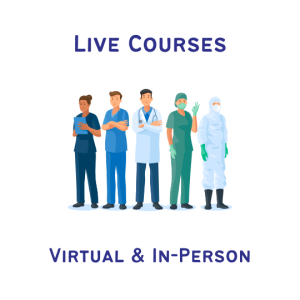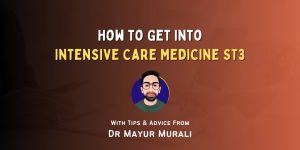
Published April 14, 2023 | Updated August 10, 2023
By Nikhil Ahluwalia
Nikhil is a cardiology registrar based in London and co-founder of Optimise Interviews, which helps junior doctors ace their core and higher medical speciality interviews.
Hints and Tips by Dr Nikhil Ahluwalia
Dr Nikhil Ahluwalia is a cardiology registrar based in London, and founder of Optimise Interviews.

Optimise Interviews has worked with hundreds of applicants and is really proud to have had top-ranking applicants coming through our programme- many scoring full marks at interview.
This year, we’re able to offer all of this to applicants to medical specialities, including:
Below, I share some of the secrets of success I’ve seen in the most successful candidates I’ve worked with.
How to Approach the Suitability and Commitment Station… In 60 seconds
We’re all busy. TikTok has killed our attention spans. So here are some high-impact tips you can act upon that will only take you 60 seconds to read.
On your marks, get set, and go!
“Tell Me About Yourself”
You are all going to have to do the “tell me about yourself” question.
Do you remember in IMT where you had to give your C.A.M.P. presentation? Well, you should expect to have to sell yourself in a similar way just this time without the forewarning. Examiners love to be efficient and just like a good clerking, your S&C station will most likely start with an open question along these lines. Make sure you’ve got something prepared.
Here’s our top tip try to differentiate yourself from the other 30 answers they are going to hear today: think about what your USP is.
Show Your Enthusiasm!
If this wasn’t an interview would you enjoy it?
This is a common theme that came up over and over again in our interviews with successful candidates. You very rarely get 30 minutes of undivided consultant attention to talk about yourself and the speciality that you enjoy.
Make sure you convey your enthusiasm and passion, and the first step towards that is… Smile!
Be Genuine
You may be tempted to listen to that devil on your shoulder and make up a scenario where you demonstrated excellent, teamwork and empathy (whilst carrying a patient over your shoulder out of a burning building!), but these often become unravelled under the pressure of the interview or with a few probing questions.
If you’ve worked in the NHS for a couple of years, I can guarantee you have enough real anecdotes that your examiners will want to hear. So the challenge here is to try and present them eloquently with clear signposting.
This comes with practice, so make sure you know which anecdotes you’re going to use well in advance.
And the time is up!
I hope at least one of the three points was useful, and if you want to practice implementing them, here are some examples and hear many more as we go over all the different aspects of this highly impressionable station, you know where to click!
We hope all your preparation is going well and remember – do yourself justice and give the interview the respect it deserves!
How to Approach the Clinical Station… In 60 seconds
We’ve decided to level up and take on the beast (if you know, you know) that is the clinical station.
So start your stopwatches… Let’s go!
Know Your Stuff
Now, you may not have done a rotation of the speciality that you’re applying for, but that is no excuse for you not to be familiar with the common pathologies and their appropriate investigations and treatments.
Your interviewers will expect you to discuss these in a way that demonstrates some real-world familiarity (i.e. you’ve not just memorised a textbook), so go shadow the registrar, hang out on your speciality teams ward, or if you really want to hear how this is done, check out the ‘clinical knowledge updates’ on the optimise interviews website now.
You’ve Got Time
Your clinical station is the only one where you will be shown your question stem and then be left alone to plan your answer.
This time is golden and use it to structure your answer, think of your opening sentence and plan your high-yield points. Because you’ve got this extra time, your examiners will be expecting a lot, so don’t disappoint.
Look to the Future
You are applying to be an ST4. This means you have responsibility for the patient beyond their inpatient admission. This means making sure they have an outpatient follow-up, family involvement if appropriate, and those three magic letters… MDT.
Talking about the long-term plan for your patient will demonstrate that you know what registrar life involves and that your examiner can trust you to do the whole job.
How was that?
Hopefully it made sense and you’ve got something out of it. You should really take your time to prepare for the station because it’s a real discriminator.












